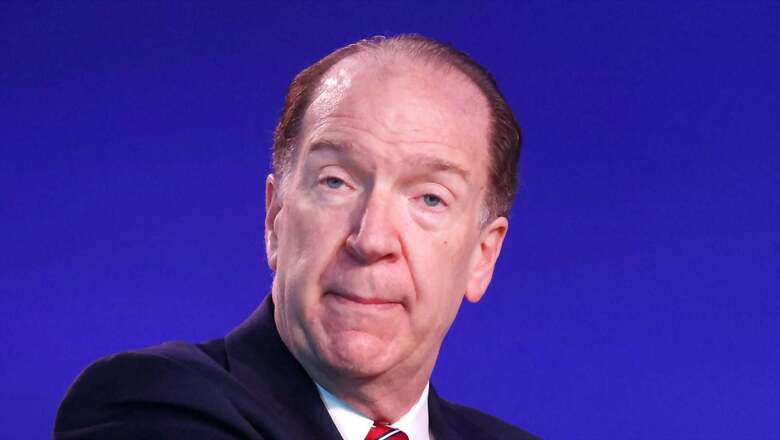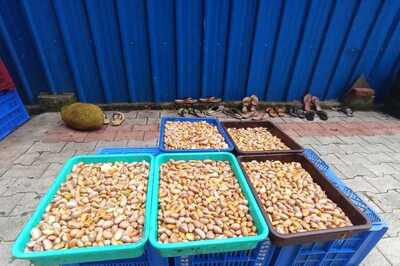
views
World Bank President David Malpass on Thursday warned that the global economy is “dangerously close” to a recession and called for targeted support for the poor. “The growth rate, we’ve lowered our 2023 growth forecast from 3 per cent to 1.9 per cent for global growth. That’s dangerously close to a world recession, and that’s – a world recession could happen under certain circumstances,” Malpass told reporters on the sidelines of the annual meeting of the World Bank and the IMF here.
All of the problems that people have taken note of, the inflation problem, the interest rate rises, and the cutoff of capital flows to the developing world hits the poor hard, he said, adding that’s a huge challenge for the bank. “We are focused on helping people get ahead in developing countries, and right now there have been reversals. The countries, of course, are all different. So, we’ll have a discussion today of certain countries. So, it’s not monolithic at all,” Malpass said.
Some countries, he said, have already been raising their interest rates and may be reaching a point where they don’t have to keep raising. Some countries have done one kind of subsidy versus another kind of subsidy. “And so, fiscal policies are different throughout. And also, very importantly, some countries are commodity producers and some are commodity buyers. And so, we’ve, in general, advocated for countries that when–as they address the crisis that they try to have targeted responses.
That means support for the poor; that means interventions that are targeted; and also, there’s an exit strategy, they are temporary, Malpass said. According to Malpass, the buildup of debt for developing countries is mainly because of high interest rates; the amount of debt itself is up; and their currencies tend to be weakening. “The depreciation of the currency adds to the burden of the debt. We have a fifth wave of debt crisis facing the developing world, he said.
Noting that there has been a lot of discussion on Ukraine, he said the World Bank is the primary conduit for the transfer of funds to the administrative side of the Ukrainian government. “We had good conversations yesterday on that. We’ve set up yet another trust fund so that we can absorb money from various parts of the world, donor community,” he said. “Very important what’s going on in education. As you know, learning poverty is up. The World Bank has kept extensive data on the reversals going on in education. And so, we had an important event to discuss the principles of getting out of that crisis, he added.
“On climate, we’ve had extensive interaction. As you may know, the World Bank is the biggest funder of climate action. We are proposing at this meeting a new trust fund called SCALE that would allow the world–the global community to put funding into global public goods. So, that’s the connection that needs to be set up within the global system to actually have impact on greenhouse gas emission reduction, Malpass said.
Read all the Latest Business News and Breaking News here




















Comments
0 comment